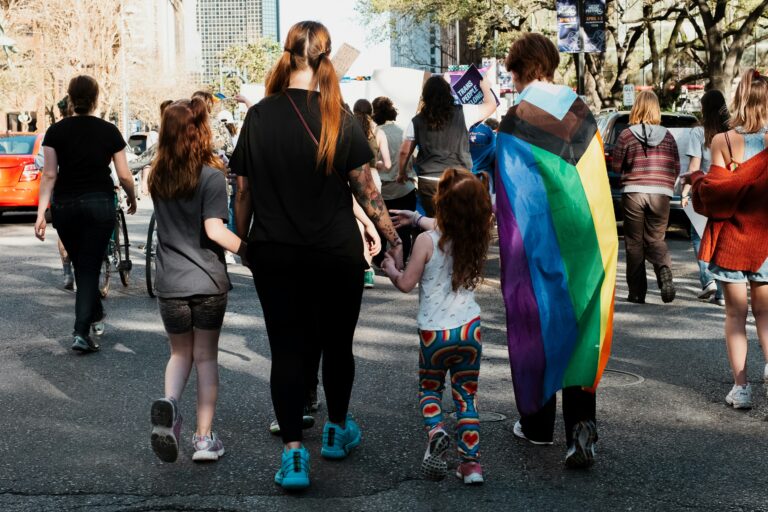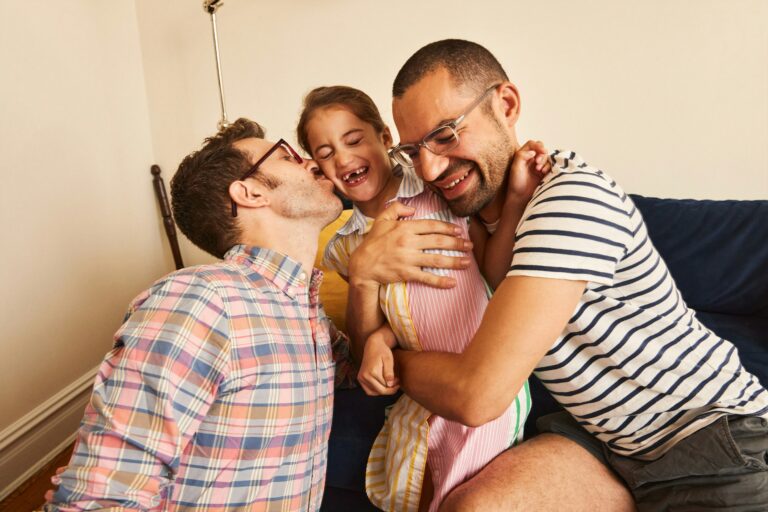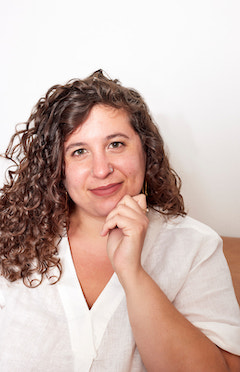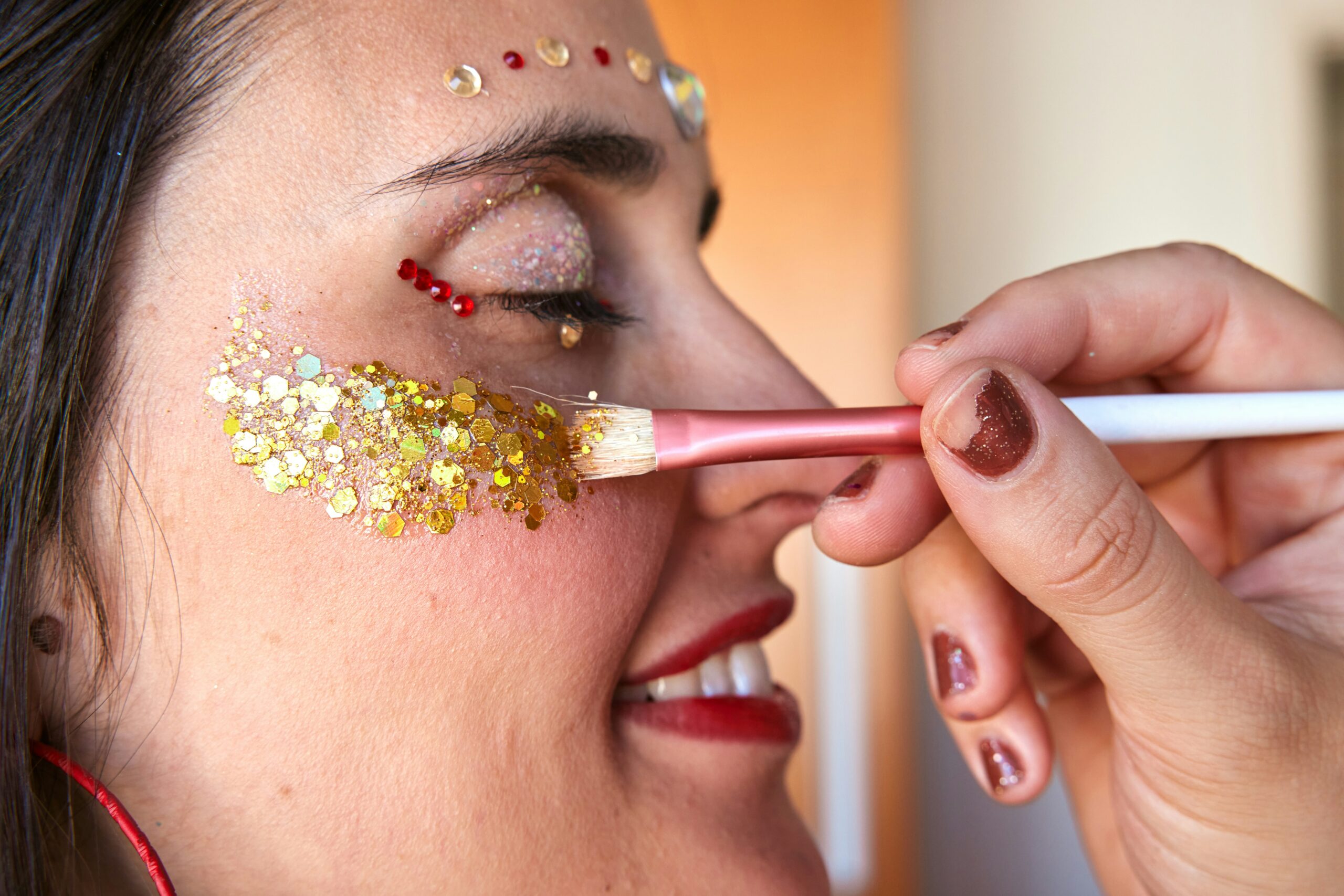It’s June, which means Pride, yes. But also: reflection, celebration — and a deeper look at what it really means to build and raise a queer family today. As a psychotherapist and a queer person who works closely with LGBTQ+ adults, I’ve had the honor of witnessing the raw beauty and complexity that comes with queer parenting journeys.
I’ve sat with nonbinary clients navigating fertility treatments, supported two-mom households managing identity and visibility, and walked alongside families reimagining what parenthood looks like — on their own terms.
There’s so much magic here. And also, so much we don’t talk about. I want to change that.
I’ve been working as a psychotherapist since 2017, primarily focusing on supporting queer and trans adults. I’ve seen clients navigate the early stages of deciding to have children. I’ve also witnessed clients navigate what it means to be a parent later in life. And everything in between.
This work is life-changing and soul-nourishing.
Every day that I meet with clients, I feel an immense sense of gratitude and honor. Since I’m also part of this community myself, I find this work to be deeply meaningful. One of the most meaningful parts of my work is sitting with queer parents — and parents-to-be — as they navigate the deeply personal, often complex journey of building a family in a world that wasn’t designed with them in mind.
So what does it mean to parent as a queer person today? There’s no single answer. But over the years, I’ve noticed powerful throughlines—patterns of strength, challenge and resilience — that come up again and again in my sessions.
Here are just a few:
Everyone has doubts.
Sometimes it can feel like you are broken or a failure or shouldn’t be a parent because you have doubts. But, really, what that means is that you’re human. As you navigate the process of trying to conceive and raising a child, there are so many decisions to make. But you get to write your own script and rules.

You get to decide if you want to have a kid, how you want to have a kid, what role you want to play in the kid’s life, and the values that you bring into it each and every day. Yes, you’ll likely have many doubts along the way, but you also get to lean on your queerness and values to help you find your way through those moments.
I’ve supported clients who doubted whether or not to tell their parents when they’re pregnant, or anxiety about who to open up to about their child’s neurodivergence. Having doubts is part of the parenting experience. And your queerness has given you the tools you need to navigate this.
Write your own story.
One of the gifts of being a queer parent is that you’ve already learned how to pave your own way. For some, that could mean that you came out as trans in your 50s; while for someone else it could mean that you learned how to navigate the world as a queer kid in an environment that didn’t fully understand you.
Either way, your queerness has offered you an invitation to write your own story.
When it comes to parenting challenges that my clients experience, I see them navigate worries about when and how to set boundaries with grandparents, or questioning the type and amount of exposure their child has to screens. With both of these examples, it is incredibly important to ground yourself in your values, and remember that you know how to carve out your own path in this world. You get to make these decisions. You know how to find your own way amidst misaligned societal pressures and norms. Your queerness is the reminder that you may need to remind you of this each day.
It takes a village.
Another theme that I’ve seen time and time again is the isolation parents feel while raising kids. The amount of love, labor, sweat and tears that goes into parenting is a lot.
For queer parents, you likely already know the value in having a chosen family. Queerness offers you an invitation to build your chosen family. For many queer people in this world, there is a level of ‘otherness’ that we experience.

For my clients, having people who really see and love them because of their queerness has been a major lifeline for survival. As a parent, it’s the same. You need other people. But more importantly, you need other people who understand you. Who love you. Who want to see a queer family thrive. Aside from chosen family, there are also community resources for queer folks that offer a village at all stages of the fertility journey, such as Pregnant Together. We all need community. We all need support. For queer families, it’s a matter of finding the right kind of support.
Knowing yourself is crucial.
Coming into one’s queer identity often means that you’ve developed a deep relationship with yourself. Queerness is an invitation to get curious about who you are, your needs, your emotions, and how you want to exist in the world. Parenting requires the same!
Of course, self-awareness is a lifelong journey that evolves over time; but I think queer parents are uniquely situated to do the deep work of knowing one’s self while also raising a family. And if you need a little help with this (as many do!) therapy is one resource that can help you.
Advocacy is power.
Many people go through the fertility and parenting journeys feeling disempowered. And there are systematic reasons for this. I don’t need to tell you about the abysmally high maternal mortality rate, or the levels of violations families experience in the public education system.
Queerness is not only about your sexuality or gender, it’s also an invitation to stand up for yourself and your community. Queerness is political.

As a queer parent, you already know the value of advocacy. When you go to doctor’s appointments or teacher conferences, don’t be afraid to ask questions. It can also be helpful to have a support person join you and help you advocate for your needs. And if you need a higher level of support, ask for it! Your queerness is a strength. It has taught you the utility of being visible and making your voice heard.
Consider therapy before or during parenthood.
Another aspect of my work that I love is supporting queer couples in preparing to embark upon the parenting journey. I practice queer-affirming and gender-affirming therapy. That means that when queer couples come to me to talk about building a family, they don’t need to worry about educating me on language or worrying about being misgendered. Those things are baked into the way that I work. That way, couples feel safe enough to dig into the emotional and relational preparation that they’re there to do.
So, how can therapy help couples prepare to become parents? I walk my couples through a fairly structured process. The majority of the work is teasing apart and unpacking the scripts and dynamics that show up in the relationship, and then rebuilding a grounded and intentional dynamic.

This is so helpful when preparing to bring a child into the mix! My couples walk away from our work feeling more connected, more communicative, and more able to navigate hard things together as a team. Their children know they can lean on their parents to be the grounded support system they need. If you need help with any of this, I’d highly recommend seeking out the support of a skilled couple’s therapist who is LGBTQ-affirming.
Therapy can be a deeply transformative space — and for queer families, it’s often one of the few places where they don’t have to explain themselves first. As a queer therapist supporting queer adults, I don’t take that lightly. It’s a profound privilege to witness the vulnerability, resilience, and joy that unfolds in the therapy room.
LGBTQ-affirming care doesn’t just help queer families survive the system — it gives them the space to rewrite it. Not just surviving, but thriving. Fully. Boldly. On their own terms.
Author
-

Laura Grossman is a therapist who proudly identifies as queer. Her passion lies in helping individuals and couples navigate life's ups and downs, especially those who identify as LGBTQ+, but she works with all sorts of people looking to bring more happiness and confidence into their lives and relationships. She has a particular fondness for supporting queer and trans adults as they navigate the fertility and parenting journeys. When she's not busy with her therapy practice, Laura is often wrangling her two dogs and exploring beautiful food and nature spots around her town.
View all posts




